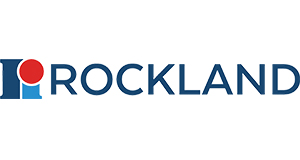c-JUN protein-GST fusion
c-JUN protein-GST fusion
SKU
ROC009-001-R71S
Packaging Unit
20 µg
Manufacturer
Rockland
Availability:
loading...
Price is loading...
Application Note: c-JUN Protein is stored in 50mM Tris-HCl, pH 7.5, 150mM NaCl, 10mM glutathione, 0.1mM EDTA, 0.25mM DTT, 0.1mM PMSF, 25% glycerol. c-JUN Protein is suitable for use in Western Blot and Kinase Assay. Expect a band approximately ~ 35kDa on specific lysates or tissues. Specific conditions for reactivity should be optimized by the end user.
Concentration Value: 0.2 µg/µL
Western Blot Dilution: User Optimized
General Disclaimer Note: This product is for research use only and is not intended for therapeutic or diagnostic applications. Please contact a technical service representative for more information. All products of animal origin manufactured by Rockland Immunochemicals are derived from starting materials of North American origin. Collection was performed in United States Department of Agriculture (USDA) inspected facilities and all materials have been inspected and certified to be free of disease and suitable for exportation. All properties listed are typical characteristics and are not specifications. All suggestions and data are offered in good faith but without guarantee as conditions and methods of use of our products are beyond our control. All claims must be made within 30 days following the date of delivery. The prospective user must determine the suitability of our materials before adopting them on a commercial scale. Suggested uses of our products are not recommendations to use our products in violation of any patent or as a license under any patent of Rockland Immunochemicals, Inc. If you require a commercial license to use this material and do not have one, then return this material, unopened to: Rockland Inc., P.O. BOX 5199, Limerick, Pennsylvania, USA.
Physical State: Liquid (sterile filtered)
Purity and Specificity: Recombinant human c-JUN (1-79) expressed in E. coli cells using an N-Terminal GST Protein. The purity was determined to be >50% by densitometry.
Background: c-Jun is a proto-oncogene that forms a complex with c-Fos which regulates transcription from promoters containing AP-1 activation elements (1). c-Jun has specific DNA binding activity and following in vitro translation, c-Jun binds as a homodimer to the AP-1 DNA site. The transactivating function of c-Jun is acutely regulated by a wide variety of cellular signals via modulation of phosphorylation of two serines (63 and 73). Jun N-terminal domain kinases (JNKs), are responsible for mediating S63/73 phosphorylation on c-Jun in response to a variety of cellular stimuli including TNF-a, heat stress and u.v. light (2). c-JUN Protein is ideal for investigators involved in Signaling Proteins, Transcription Proteins, Apoptosis/Autophagy, Cardiovascular Disease, Cellular Stress, Inflammation, JNK/SAPK Pathway, Neurobiology, and NfkB Pathway research.
Low Endotoxin: No
Other: Kinase Assay-User Optimized
Concentration Value: 0.2 µg/µL
Western Blot Dilution: User Optimized
General Disclaimer Note: This product is for research use only and is not intended for therapeutic or diagnostic applications. Please contact a technical service representative for more information. All products of animal origin manufactured by Rockland Immunochemicals are derived from starting materials of North American origin. Collection was performed in United States Department of Agriculture (USDA) inspected facilities and all materials have been inspected and certified to be free of disease and suitable for exportation. All properties listed are typical characteristics and are not specifications. All suggestions and data are offered in good faith but without guarantee as conditions and methods of use of our products are beyond our control. All claims must be made within 30 days following the date of delivery. The prospective user must determine the suitability of our materials before adopting them on a commercial scale. Suggested uses of our products are not recommendations to use our products in violation of any patent or as a license under any patent of Rockland Immunochemicals, Inc. If you require a commercial license to use this material and do not have one, then return this material, unopened to: Rockland Inc., P.O. BOX 5199, Limerick, Pennsylvania, USA.
Physical State: Liquid (sterile filtered)
Purity and Specificity: Recombinant human c-JUN (1-79) expressed in E. coli cells using an N-Terminal GST Protein. The purity was determined to be >50% by densitometry.
Background: c-Jun is a proto-oncogene that forms a complex with c-Fos which regulates transcription from promoters containing AP-1 activation elements (1). c-Jun has specific DNA binding activity and following in vitro translation, c-Jun binds as a homodimer to the AP-1 DNA site. The transactivating function of c-Jun is acutely regulated by a wide variety of cellular signals via modulation of phosphorylation of two serines (63 and 73). Jun N-terminal domain kinases (JNKs), are responsible for mediating S63/73 phosphorylation on c-Jun in response to a variety of cellular stimuli including TNF-a, heat stress and u.v. light (2). c-JUN Protein is ideal for investigators involved in Signaling Proteins, Transcription Proteins, Apoptosis/Autophagy, Cardiovascular Disease, Cellular Stress, Inflammation, JNK/SAPK Pathway, Neurobiology, and NfkB Pathway research.
Low Endotoxin: No
Other: Kinase Assay-User Optimized
| SKU | ROC009-001-R71S |
|---|---|
| Manufacturer | Rockland |
| Manufacturer SKU | 009-001-R71S |
| Package Unit | 20 µg |
| Quantity Unit | STK |
| Conjugate | Unconjugated |
| Product information (PDF) | Download |
| MSDS (PDF) |
|

 Deutsch
Deutsch










